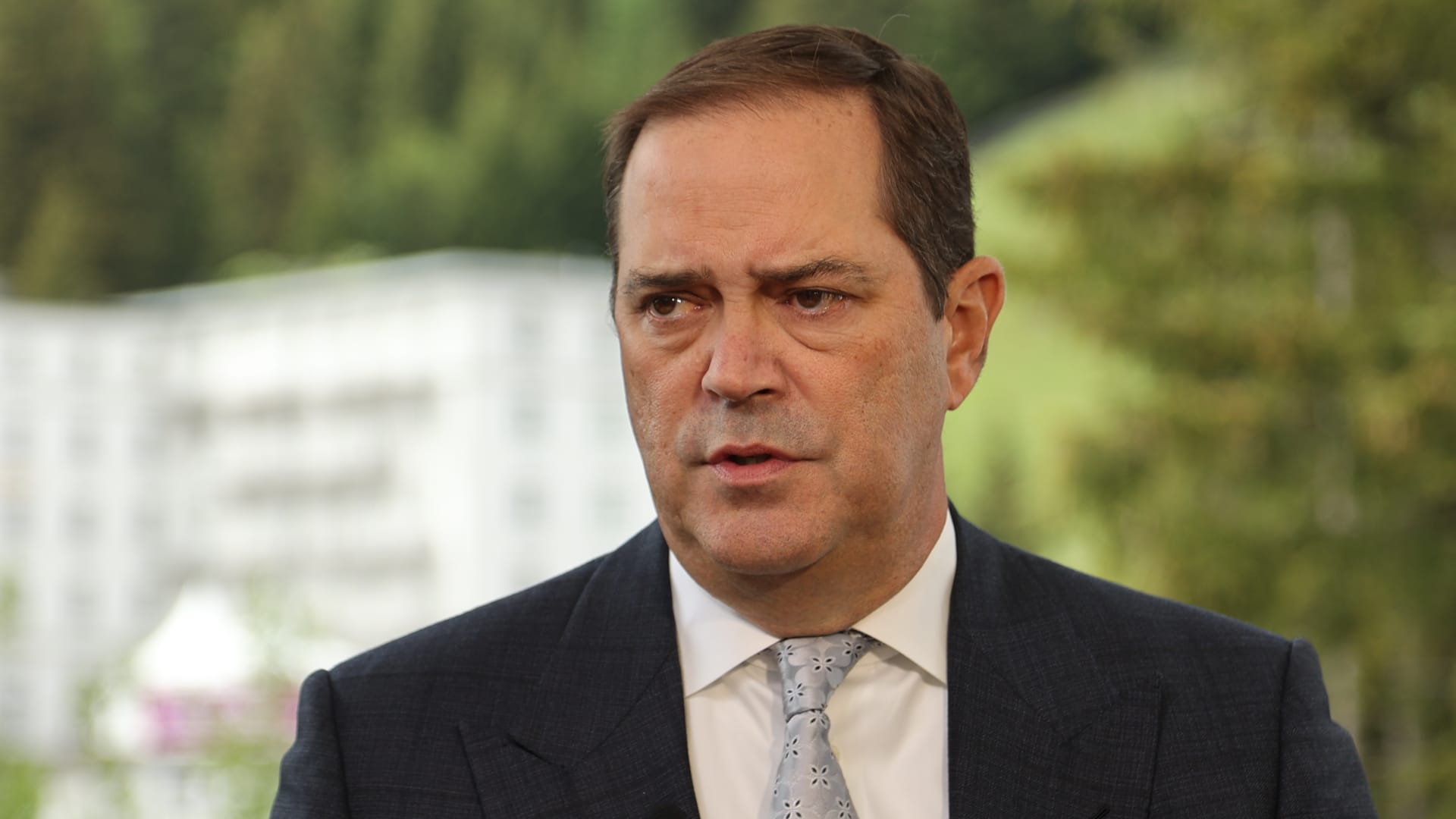
The CEO of Cisco Systems (CSCO) on Wednesday offered a reassuring assessment of the U.S. economy, a notable development due to the networking company’s exposure to business customers. “We haven’t seen anything from a demand perspective that would signal we’re heading into some recession,” Cisco’s Chuck Robbins said in an interview on CNBC from the World Economic Forum in Davos, Switzerland. Why it matters There’s a growing concern about whether the U.S. economy will enter into a recession, as persistently high inflation strains consumers and prompts the Federal Reserve to adopt an aggressive policy posture that some worry could further slow growth. Robbins’ remarks are worth listening to on the subject. The reason is because Cisco’s customer base is made up of other businesses, which buy its hardware like network switches and wi-fi access points and subscribe to its cloud and security software offerings. This gives Cisco, a Club holding, insight into corporate spending behavior, and that has macroeconomic impact. “If you have a high number, a huge number of business leaders who believe we’re going into a recession, then what are they going to do? They’re going to start cutting spending and everything else, which leads us into the recession,” Robbins told CNBC. Again, as mentioned earlier, from a “demand perspective,” meaning businesses looking to buy Cisco products and services, he reiterated, “We’re not seeing” signs of a recession. History as a bellwether Cisco’s commentary in 2007 and 2008 proved prescient about the Great Recession that resulted from the financial crisis, so that’s why we’re listening closely to what Robbins is saying now. In November 2007, then-CEO John Chambers said Cisco’s American enterprise business was going to stay “lumpy” for a while and noted a decrease in spending from U.S. banks. In February 2008, Cisco management indicated that in the prior month it saw a sudden pullback in orders not only in the U.S., but Europe, too. The Europe comments caught some by surprise, the New York Times reported at the time . That month, Cisco also issued a growth forecast considerably lighter than analysts expected. December 2007 was later determined to be the peak of U.S. economic activity, with the recession beginning from there and lasting until June 2009 . Cisco’s standing now Last week, Cisco reported mixed fiscal third-quarter numbers and put forward disappointing guidance, which the market didn’t love based on the stock decline. The company said supply chain issues related to China’s super strict Covid lockdowns limited revenue, as did Russia’s Ukraine war. After the release, we thought Cisco was being punished too harshly for a rough quarter mostly out of its control and the 3.5% dividend yield was enough compensation for our patience as we wait for the supply chain pressures to ease. “Everybody is asking me this week [at Davos], ‘How is business?’ I say, ‘We’re building a great backlog. The supply side has been challenging for sure,” Robbins said Wednesday. Cisco ended the quarter with a product backlog of more than $15 billion, while its software backlog stood north of $2 billion. Both figures were up 10% quarter over quarter. Robbins doubled down on that assessment of the quarter Wednesday, stressing that Cisco has not seen a major slump in demand. “I haven’t heard anybody say they’re in a holding pattern.” “We had close to a hundred of our biggest customers together like three weeks ago, four weeks ago. No one said that to us. We’ll see, but we’re not getting those indicators now,” he added. Club take Obviously, one company’s perspective is not the be all, end all when it comes to the economy. There’s so much else investors must monitor and consider. As Robbins suggested above when he said, “We’ll see,” conditions can change quickly. After all, on the advertising front, Snap earlier this week announced that the guidance it gave just over a month prior was going to be wrong. It said the reason was because the “macroeconomic environment has deteriorated further and faster than anticipated.” However, Robbins’ comments Wednesday are important to highlight as we try to high grade our portfolio into profitable companies that return cash to shareholders and also navigate all the uncertainty in the market. Robbins on supply chain Cisco obviously isn’t the only tech company that’s faced supply-chain issues during the Covid pandemic. As a result of what the industry has seen, Robbins said Cisco is working to build more resiliency into its component sourcing, as well as changes to the design of its products. “The technology industry historically has always designed products time to market, low cost, which means you pick a components supplier for a product, you build it in. If they have a problem, you’re in trouble,” he said. “What we’ve seen over the last 18 months forces us to change everything about that. So we build a product now, we’re going to build two versions, and that’s just the way it’s going to be.” (Jim Cramer’s Charitable Trust is long CSCO. See here for a full list of the stocks.) As a subscriber to the CNBC Investing Club with Jim Cramer, you will receive a trade alert before Jim makes a trade. Jim waits 45 minutes after sending a trade alert before buying or selling a stock in his charitable trust’s portfolio. If Jim has talked about a stock on CNBC TV, he waits 72 hours after issuing the trade alert before executing the trade. THE ABOVE INVESTING CLUB INFORMATION IS SUBJECT TO OUR TERMS AND CONDITIONS AND PRIVACY POLICY , TOGETHER WITH OUR DISCLAIMER . NO FIDUCIARY OBLIGATION OR DUTY EXISTS, OR IS CREATED, BY VIRTUE OF YOUR RECEIPT OF ANY INFORMATION PROVIDED IN CONNECTION WITH THE INVESTING CLUB. NO SPECIFIC OUTCOME OR PROFIT IS GUARANTEED.




